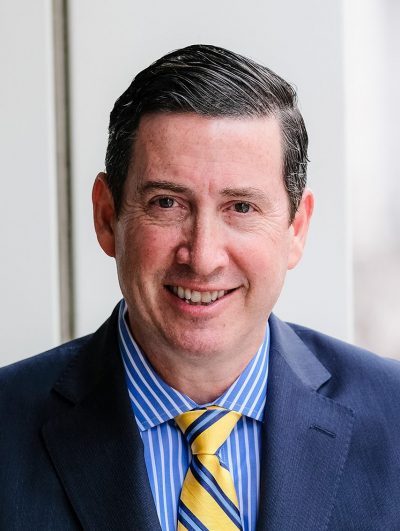
by Michael Reilly, ASBM Executive Director
The Biden Administration’s FY25 Budget, unveiled on March 11, 2024, takes aim at prescription drug costs but misses the mark and hurts rather than helps patients. Again. (Read my concerns with the Administration’s Medicare Part D price-setting system here).
This latest proposal would loosen the review criteria for some biologics and shift treatment decisions out of the hands of doctors. This proposal is built on a misunderstanding surrounding substitution of medicines and in particular the definition of the word “interchangeable” as it is used with biologic medicines.
These are very different in the US and Europe – similar to how asking for a torch in Europe will get you what we call a flashlight rather than an open flame.
This conceptual error is then used to argue for an inappropropriate expansion of automatic pharmacy-level substitution for all biosimilars- without prior FDA evaluation or physician approval, as current law requires.
The HHS Budget in Brief document describes the policy objective simply enough: “Permit Biosimilar Substitution without Prior FDA Determination of Interchangeability” and clarifies that this means “deem all approved biosimilars to be interchangeable with their respective reference products”.
Skipping over what that means, it justifies the policy by claiming “this change makes the U.S. biosimilar program more consistent with the approach adopted by other major regulatory jurisdictions such as the European Union where biosimilars are interchangeable with their respective reference products upon approval.”
First: in the U.S. and Europe alike, prescribers can already substitute any biosimilar for its reference product. What is at stake and where the two regions differ somewhat in policy is in when and how pharmacies can substitute biosimilars. The confusion stems from the fact that the term “interchangeable” has different meanings in the U.S. and Europe:
In Europe, “Interchangeable” means prescriber-substitutable.
The European Medicines Agency (EMA) has stated1all biosimilars it approves are “interchangeable” in that they “may be prescribed interchangeably” and that this does not refer to pharmacy substitution: “Member States will continue to decide…whether automatic substitution is allowed at the pharmacy level.”
European physicians (73%) strongly oppose substitution of biosimilars by someone other than the doctor for non-medical reasons (e.g. cost).2 Accordingly, this controversial practice is extremely rare in Western Europe and banned in many countries. Some resource-constrained Eastern European countries (e.g Latvia and Estonia) do permit it, however.
In the U.S., “Interchangeable” means pharmacy-substitutable.
In the U.S. “interchangeable” refers to a biosimilar which under state law may be substituted at the pharmacy level without physician approval because its manufacturer has provided additional data to the FDA demonstrating a patient can be switched between the biosimilar and reference product and expect the same result. Currently there are 8 biosimilars that can be substituted by the U.S. pharmacies in this manner, with more on the way.
Like their European counterparts, most U.S. physicians (58%) strongly oppose substitution of biosimilars by someone other than the doctor for non-medical reasons (e.g. cutting costs or increasing insurance company profits ).3 But this isn’t because physicians feel biosimilars are unsafe or ineffective; it’s because treatment plans aren’t one size fits all and many patients try several safe and effective products before they find one that best stabilizes the patient’s condition. Physicians don’t like to change medicines unnecessarily or inappropriately, and they believe the physician and the patient should make this decision, not the pharmacy or the insurance company.
- While 89% of U.S. prescribers have high confidence in the safety and efficacy of biosimilars, a majority (58%) oppose third-party switching of a patient’s biologic medicine for non-medical reasons.
- 69% of US physicians surveyed consider it “very important or critical” that patients and physicians decide the most suitable biologic to use- be it the originator or one of the biosimilars to that product.
However, the extra data currently required to receive an “interchangeable” designation from the FDA increases physician confidence: most physicians (57%) are more comfortable prescribing an interchangeable, and with an interchangeable being substituted in place of the prescribed originator product (59%)3.
The Biden budget proposal would undermine this hard-won confidence by eliminating the FDA’s science-based data requirements for permitting pharmacy-substitution of biosimilars, and declaring by fiat that all biosimilars substitutable by the pharmacy, despite the opposition from U.S. physicians. And it does so based at least in part on a serious misunderstanding of what the health systems of other advanced countries permit.
